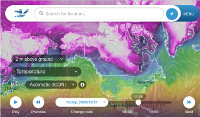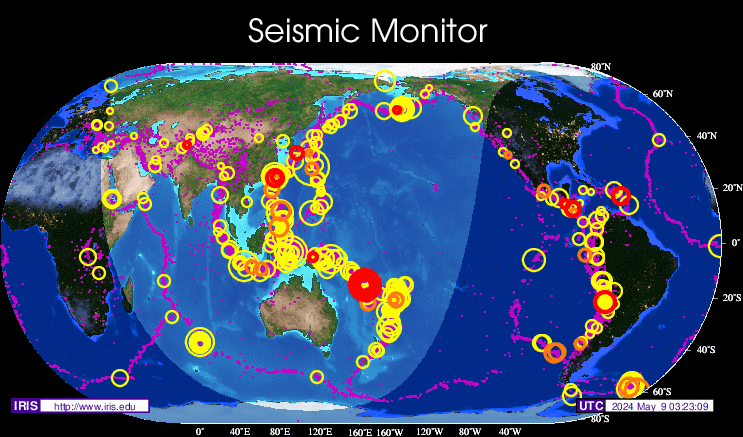Why this blog?
Until this moment I have been forced to listen while media and politicians alike have told me "what Canadians think". In all that time they never once asked.
This is just the voice of an ordinary Canadian yelling back at the radio -
"You don't speak for me."
email Kate
Goes to a private
mailserver in Europe.
I can't answer or use every tip, but all are appreciated!


Katewerk Art
Support SDA
Paypal:
Etransfers:
katewerk(at)sasktel.net
Not a registered charity.
I cannot issue tax receipts
Favourites/Resources
Instapundit
The Federalist
Powerline Blog
Babylon Bee
American Thinker
Legal Insurrection
Mark Steyn
American Greatness
Google Newspaper Archive
Pipeline Online
David Thompson
Podcasts
Steve Bannon's War Room
Scott Adams
Dark Horse
Michael Malice
Timcast
@Social
@Andy Ngo
@Cernovich
@Jack Posobeic
@IanMilesCheong
@AlinaChan
@YuriDeigin
@GlenGreenwald
@MattTaibbi
Support Our Advertisers

Sweetwater

Polar Bear Evolution

Email the Author

Pilgrim's Progress

How Not To Become A Millenial

Trump The Establishment
Wind Rain Temp

Seismic Map

What They Say About SDA
"Smalldeadanimals doesn't speak for the people of Saskatchewan" - Former Sask Premier Lorne Calvert
"I got so much traffic after your post my web host asked me to buy a larger traffic allowance." - Dr.Ross McKitrick
Holy hell, woman. When you send someone traffic, you send someone TRAFFIC.My hosting provider thought I was being DDoSed. - Sean McCormick
"The New York Times link to me yesterday [...] generated one-fifth of the traffic I normally get from a link from Small Dead Animals." - Kathy Shaidle
"You may be a nasty right winger, but you're not nasty all the time!" - Warren Kinsella
"Go back to collecting your welfare livelihood. - "Michael E. Zilkowsky
 “
“ “
“
I scolled through all the dates on that site. It looks like 2007 was the only year with a noticeably smaller ice pack. It was more apparent on the Alaska side, so it would be easy for an American to extrapolate data incorrectly. All in all, it seems there’s plenty of ice.
and meanwhile NASA had to finally admit that they were wrong for almost 30 years – they claimed Antarctica’s ice cap was shrinking due to Global Warming but then admitted that it was actually growing by .03% per year.
Instrumentation error ?
Who knows, NASA then claimed the ice sheet expansion was caused by . . taaaa daaaaa
Global Warming !!
Just did a quick google of “arctic ice free” and since their 2007 prediction was a bust for this year, they seem to be pushing the dates to the right somewhat. 2013, 2030 and 2070 seem to be the favourites now.
Hoping against hope that no one remembers when the dates roll around?
So I guess surfing at Hall Beach is a no go any time soon, eh?
In the old map made by Oronteus Finaeus in 1531, the south polar continent is shown in surprisingly accurate detail. It even shows mountain ranges and rivers that are now under ice more than a mile thick. Anyone have any idea how that fella would have know that?
It’s not that the ice cap is growing,but the land and sea area are shrinking! Damn. And just when I was gonna buy prime beachland at Eureka.
ach… sorry, should be ‘known’
So much for the missing ice cap & it shrinking. looks like to me, as if the Polar bears will need thicker coats, not water wings.
Never mind all that old global warming stuff and how we’re all going to either drown or cook to death. The latest and greatest as expressed by the Left Coast Loonies is that seven (count ’em …. 7) orcas (killer whales) are missing and believed to be dead. The hand-wringing and wailing has begun.
Somehow I get the feeling these guys live from crisis to crisis and aren’t happy unless the prophesy of gloom and doom is front and centre. It must be hell to live like that. I pity them ….. nothing is ever good.
Is there beer in that cooler?
How much beer is in that cooler?
Not that I’m thinking about beer…
(trying valiantly to cover tracks of double posting)
stop thinking
start doing
beer
i mean
Futures anyone on methane as the next gloom & doom catastrophe gas of the loonie left.
I’m hopeful that the ice will continue to recover. There has been a good start to the winter season in the arctic basin, even in the regions that did see more ice melt in 2008 over by Novaya Zemlya, the ice is rebounding quite nicely.
This current regime is still rather lukewarm compared to the depths of the 1970s when northern ice extent was at a fifty-year maximum, so I would urge caution in the more optimistic statements about the warming being a thing of the past. The recent warming could lurch back to life at any time, so the longer this current colder spell can be maintained, the better.
I don’t think that recent warming (let’s say from 1980 to 2007 with some variations) is anything more or less serious than a natural cycle. But because it probably was a natural cycle, the argument that says “hey it’s not AGW after all” unfortunately constitutes no particular proof that warming won’t return.
If it does return, the arctic could go ice-free, as I believe it has before on several occasions since the last glacial maximum. On the very long time scale, we are somewhere near the peak of an inter-glacial, so all of this handwringing about a warming arctic seems a bit daft to me, what else could we reasonably expect? But cycles come and go, right now there is a colder turn, and bravo, long may it continue, at least it may shut Al Gore up (or down).
Peter
1. The current info on Arctic ice is based on satellite images, which became available in 1979 or so.
2. The RCMPV St Roch made a direct passage through the Arctic on her return to Vancouver in 1944, indicating that the Northwest Passage was generally ice-free that summer.
Cheers
you’re hopeful that the ice will continue to recover????
Not me, I want it to go away, so people will stop leaving Manitoba because,….. it’s too cold!!!!
Well other than to annoy lefties.
more heat please.
Where are my palm trees?
Suzuki promised me palm trees!!!
Just in case anyone mistook me for a warmist, warmer or whatever the new state religion folks call themselves, nope, I’m a skeptic and a big fat denialist, but as to the actual ebb and flow of ice extent in the far north, that tends to be a pretty wide open subject before 1970. Although satellite coverage is only reliable since the 1970s we have pretty good records from other sources going back into the 1950s, and anecdotal reports like the one for 1944 mentioned above.
I tend to the following general ideas, going backwards in time to make it a little easier to follow:
— there was a period of relatively less ice from about 1988 to 2007 and this is now showing healthy signs of recovery.
— there was a period of relatively thick ice in the 1960s and 1970s at least in most of the arctic basin
— the 1940s to 1950s seem to be a more variable period following another ice-free era around the late 1920s and early 1930s.
— before that, the further back you go, the more thick ice you would find, at least to about 1400 AD.
— before that, you would run into the relatively ice-free MWP and that probably peaked around 1100 AD.
— long before that, according to some rather sketchy archaeological evidence involving whale bones, there were also periods of more ice than today (around 1000 BC for example), and less ice than today (around 3000 BC for example), but eventually you get to the Ice Age last stages when sea level was a lot lower so that the arctic islands were either covered by thicker ice, or barren but not separated by as much open water.
So that made for a totally different ice regime, but since the land glaciers largely disappeared there have been periods with more ice than nowadays, and periods with less ice. Some believe there might have been ice-free Arctic ocean conditions in the so-called Climatic Optimum, others say less ice than 2007 but not totally ice free. There was almost definitely a total absence of ice at times in the last inter-glacial about 120,000 years ago.
Based on all that, I find overconfident predictions of linear AGW rather presumptuous and almost definitely doomed to failure. About all we can say for sure is that ice extent in the Canadian and Siberian arctic has always been prone to large fluctuations on about a 20-40 year time scale as well as by centuries and millennial time scales. This is not likely to change just because Al Gore and David Suzuki charge a lot for their time.
Like all those other rediclous predictions from the enLIARmentalists who made all those rediculous predictions back in the 70s during the first earthday celebrations and their still lying even today SCREW THE GREENS SCREW THE LIARMENTALISTS,SCREW PAUL EHRLICH,SCREW AL GORE,SCREW DAVID SUZUKI,SCREW ROBERT KENNEDY Jr,SCREW THE SIERRA CLUB,SCREW GREENPEACE,SCREW THE WORLD WILDLIFE FUND
Good site. (“Cool” doesn’t quite seem like the right adjective.)
I did notice that sea ice on this date in the 1980s tended to extend further into the Bering Sea, however.